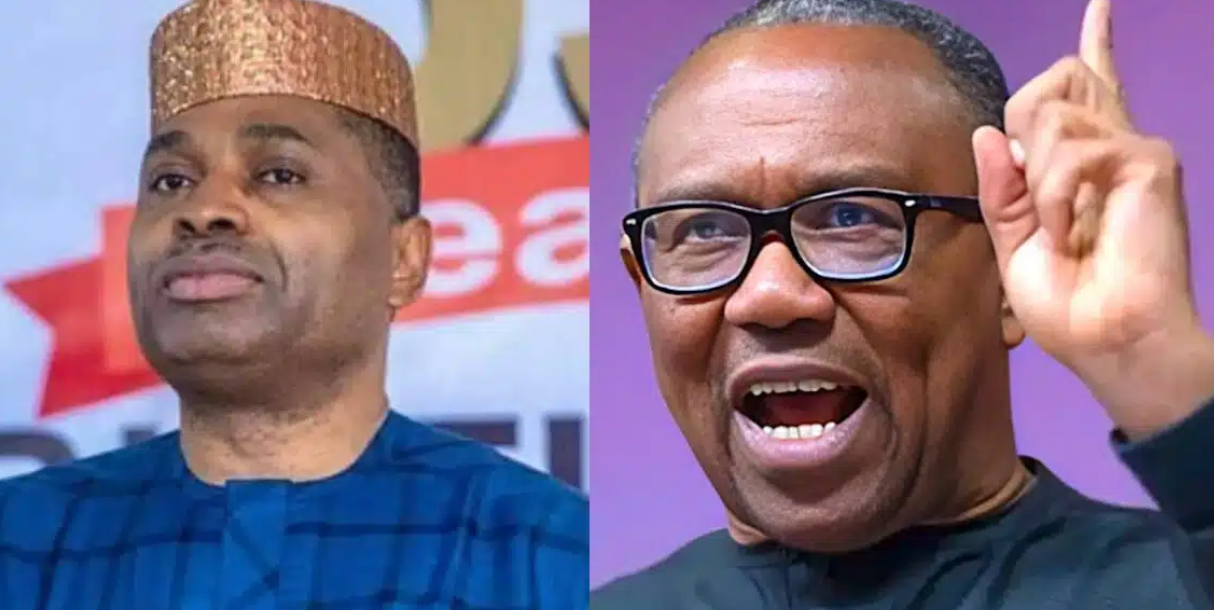Former Labour Party chieftain and prominent member of the opposition, Kenneth Okonkwo, has provided a detailed analysis of Peter Obi’s pledge to serve only a single term if elected president. According to Okonkwo, this commitment was a strategic political maneuver designed to secure crucial support from Nigeria’s northern region.
Okonkwo made these statements during a comprehensive interview on Channels Television’s flagship program, Sunrise Daily, which aired on Friday. The veteran actor, who successfully transitioned into a political commentator, framed the promise within the complex dynamics of Nigerian geopolitics.
A Calculated Strategy for National Inclusion
During the interview, Okonkwo articulated that Peter Obi, the Labour Party’s presidential candidate in the 2023 elections, possessed a deep understanding of the Nigerian political landscape. He asserted that Obi knew such a promise was necessary to avoid alienating northern voters, who are a significant demographic in any national election.
Okonkwo explained that for any opposition party to mount a successful challenge against an incumbent government in Nigeria, it must present a platform that assures all geopolitical regions they will not be marginalized or sidelined. The promise of a single term was presented as a key component of this assurance.
“So I brought the theory as a way for any opposition party to inspire Nigerians to know that each side will not lose when they make any choice, whether North or South,” Okonkwo stated during the televised discussion.
Precedent and Political Pragmatism
Further strengthening his argument, Okonkwo pointed out that the concept of a one-term presidency was not an original idea conceived by Peter Obi. He highlighted that former Vice President and perennial presidential candidate, Atiku Abubakar, had publicly made a similar pledge in the past.
Okonkwo clarified that Obi’s adoption of this strategy was an act of political pragmatism. He reasoned that if a younger candidate like Obi did not make such a concession, he would risk losing the entire northern vote, which would be catastrophic for any presidential ambition.
“It was even Atiku Abubakar that first of all said he was going to do one term, then Peter Obi now keyed into it because he knows that if he, as a younger person, does not make that promise, he loses the entire North. So it’s purely a political strategy,” Okonkwo elaborated.
Reassuring a Divided Electorate
At the heart of this strategy, according to Okonkwo’s analysis, was the need to provide reassurance. The promise was intended to signal to the entire country that an Obi presidency would not “shortchange” any part of Nigeria.
The political calculation hinges on the unwritten principle of rotational presidency, often referred to as “zoning” in Nigerian politics. The argument suggests that the current administration of President Bola Tinubu is expected to run for two terms, representing the southern part of the country for eight years.
Therefore, a one-term pledge from a southern candidate like Obi would serve to complete the South’s anticipated eight-year tenure before power would naturally rotate back to the North. This framing positions the pledge not as a limitation but as a commitment to upholding a perceived balance of power and national equity.
The Broader Context of Opposition Politics
Okonkwo’s comments shed light on the intricate and often delicate negotiations that define opposition politics in a multi-ethnic and multi-religious nation like Nigeria. Strategic promises are often essential to build the broad coalitions required to win a national election.
The revelation underscores the fact that political campaigns are frequently driven by pragmatic calculations aimed at building the widest possible support base, even when such calculations involve significant personal concessions from the candidates themselves.
In essence, Kenneth Okonkwo’s explanation paints Peter Obi’s one-term pledge as a necessary and astute political tool. It was designed to navigate the complex expectations of power rotation in Nigeria, assuring northern voters that their political interests would be protected and that the established cycle of governance would remain intact, thereby making a southern candidate from an opposition party a more palatable choice for a broader national audience.

